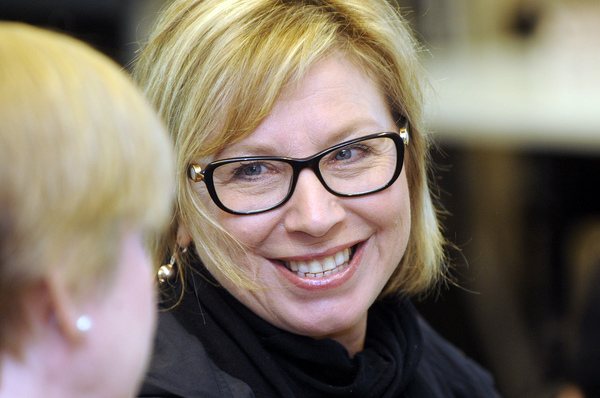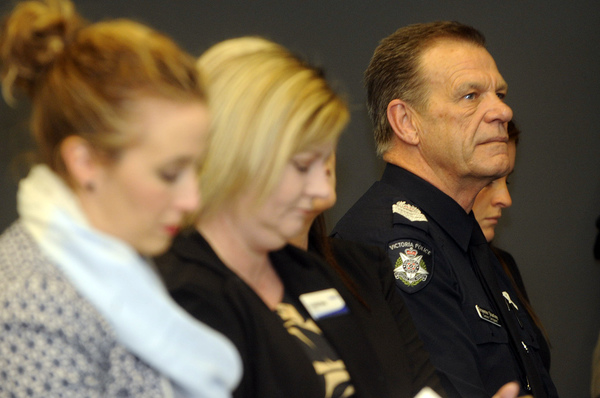

By Aneeka Simonis
POLICE should not be the first port of call for a victim suffering from family violence, according to one of the country’s high profile family violence survivors, Rosie Batty.
Victims’ first call should be to crisis support lines such as 1800 RESPECT long before police intervention is required.
Ms Batty spoke to a captivated audience at a family violence prevention forum at the Toomah Community Centre in Pakenham on Monday 28 August alongside Minister for the Prevention of Family Violence and Minister for Women Fiona Richardson MP.
She gave victims advice on escaping a violent relationship, each focused hugely on support networks.
“I know police would say to ring triple zero and report crime.
“But as a victim, I know why that is hard and don’t actually say that is always first and foremost thing to consider,” she said.
Ms Batty, mother of Luke Batty who was killed by his father at cricket practice in Tyabb in 2014, reached out to a crisis support line years earlier and said it was the “best thing” she could have done.
Before then, years of psychological torment and intimidation didn’t seem like enough to call in police.
She soon learnt violence comes in many forms.
“Sometimes we don’t actually see violence in our relationship for what it is.
“We may not even understand different forms of violence. We actually may be too busy blaming ourselves to really see it the way other people see it,” she said.
“So 1800 RESPECT is a starting point. From that first step, victims are linked with a trauma informed counsellor or into specialised services in their local area.
“But importantly, that first step is a conversation with someone who is not judging you, criticising you or even blaming you. It’s confidential.
“It’s about understanding that the relationship will never get any better and while there is still hope, there is still an investment that somehow if you stick it out, you could make it work. But without intervention, help and support, it will only get worse. Always.”
After that call to the crisis line, Ms Batty linked in with a support forum. When she arrived, she was surrounded by the faces of many other women experiencing the same violence in their own homes.
What she took from that group strengthened her to fight.
“It changed me and gave me the power to rebuild my own self-worth. Linking into specialised service is incredibly important. Sometimes you aren’t an expert on your own safety,” she said.
Ms Batty went on to explain that violence can often worsen once a victim leaves a relationship, and ongoing support was incredibly important for the victim.
“It’s important you have a relationship with the police. Getting an apprehended violence order (AVO) is an important step, but it doesn’t guarantee your safety. You need support.”
Lastly, Ms Batty encouraged victims to find their voice and speak out against violence.
She said the strength used by one victim to speak out may motivate another to escape or, better still, shift attitudes enabling disrespect and violence toward women and girls.
Ms Batty shared a panel with Senior Sergeant Graeme Stanley, Windermere CEO Dr Lynette Buoy, Women’s Health in the South East (WHISE) CEO Susan Glasgow and Cardinia Shire Council’s Manager for Community and Family Services Pam Martin.
Each spoke about the importance of early intervention and education to help shape young people on issues of equality.
Ms Richardson declared a State Government shake-up on dealing with family violence matters and said that the issue will remain bipartisan.
“We need to stop funding crisis over prevention. The government is very good at responding to crisis and harms of family violence, but this is a crime that is entirely preventable.
“We need to do more to prevent it in the first place so we can drive down these behaviours before they reach the police and the courts,” she said.
Sen Sgt Stanley said police recruits now undergo more than a week of dedicated training on dealing with domestic violence issues.
The forum was facilitated by Bass MP Brian Paynter who is a White Ribbon Ambassador.








